The dynamics of the relationship between a CFO and his Treasurer is one of the main tenants of a successful business, so what are CFOs looking for and what makes a successful Treasurer in the CFO’s eyes?
In previous podcasts at the Treasury Talent website I have asked top treasurers for their views on the relationship, but here we will look at the thoughts of some senior CFOs.
Alison Harrop is Chief Financial Officer at Dexus, the Australian property owner and management giant, responsible for the overall finance function including taxation, treasury, management accounting, corporate accounting and planning and analysis. With over AUS$3bn in funds under management Alison understands the importance of her relationship with Treasury.
When asked how the Treasury Department was viewed from her point of view she said “It is a really key part of our business. In property we have to fund big balance sheets and key assets which appear on them, and treasury is fundamental to that. I would say the Treasury function is privy to almost everything that goes on here at Dexus. When we are looking at acquisitions, sales, and strategic moves in a corporate sense Treasury is one of the first people in the room. Since the financial crisis having liquidity at all times, being fully diversified and pushing the debt centre out are things we are noted for.”
Her relationship with the Treasury department as CFO is uncomplicated. “I leave most of it to Treasury, my input is around some of the parameters and settings we are doing, whether pricing or size of debt deals, where there is some subtlety or nuance to what we are trying to do, but by and large my Treasury team do an awesome job. They are the experts so all I am doing is a bit of commercial input about what the business is trying to achieve, so we are not doing something in Treasury which will stop us achieving our desired outcome down the track. Generally, I leave it to my Treasury team to come up with the answers!”
So, what makes a good Treasurer in her eyes?
“Clearly some technical expertise and some commercial experience, having done this job before, but I think more importantly the Treasurer has to come and talk to senior executives and the Board a lot, and so the ability to translate Treasury speak and market speak into English for people who are not treasury experts is a real skill.
“Being able to tell the story about what we are doing, and why, is a skill that not everyone in Treasury has, but people who can do that are going to be really successful.”
Ryan Seghesio is CFO and Treasurer at the California Independent System Operator (ISO), and has Treasury experience from his time at Oracle so has a unique insight into the relationship CFOs and Treasury.
“I am actively involved in Treasury since it is in my job title and I play an active role in the Treasury function,” he told me before explaining what he thinks makes a good Treasurer.
“In addition to a range of Treasury skills they must be a good communicator and people leader. In most organisations they will have employees to manage. They not only need to do their job, but be a great leader. Treasury is viewed very highly within our organisation largely because of our credit risks.”
The issue of communication also came up during my chat with Gerhard Ziems, CFO at Pacific National, but he opened up with another aspect of what makes a good Treasurer.
“A good Treasurer will help the CFO protect the balance sheet, so that is one important requirement. The Treasurer must be also be able to engage with not only all stakeholders including senior executives, the Board and shareholders, but also investors. Staying close to all of these stakeholders is crucial for myself as CFO, and this needs to be heavily supported by the Treasurer.”
Gary Zyla has been CFO at AssetMark since 2011 and has strong views on what he expects from Treasury.
“First of all, I would say a level of precision or accuracy both in the reporting of the existing numbers, as well as where we are going to be in the next quarter or year. That creates confidence not just across the whole finance function, but within Treasury as well.
“Secondly the ability within the Treasury team to ensure they are communicating well with the rest of the business. If I view Treasury as the ones paying all the bills for us, the ones bringing in the cash then when those are not handled well you have got to be able to have a good conversation with our business partners as well as internally to make sure you resolve things.”
The final word goes to Ross Acott, a former Treasurer who is now CFO at Flexigroup, who spells out what he wants from his Treasurer.
“Someone who is willing to get their hands dirty, but who is willing to bring the team along and develop it. Treasury needs to be seen as relevant by the rest of the business. As we have seen over time good Treasurers can do that by themselves, they don’t need to be helped by the CFO.”
Two major requirements which the CFO sees as essential from their Treasurer seem to be control of the balance sheet and the company’s assets, but also a more personal skill. The Treasurer needs to be able to communicate with stakeholders not only on a regular basis, but in a way which demystifies what can be viewed as the complex world of Treasury.
The roles of CFO and Treasurer are inextricably linked, but whilst they over-lap they are distinct. CFOs need help from their Treasurer but also have clear lines of demarcation which define their expectations from their colleagues.
Listen to the full audio interviews at the Treasury Talent podcast.
